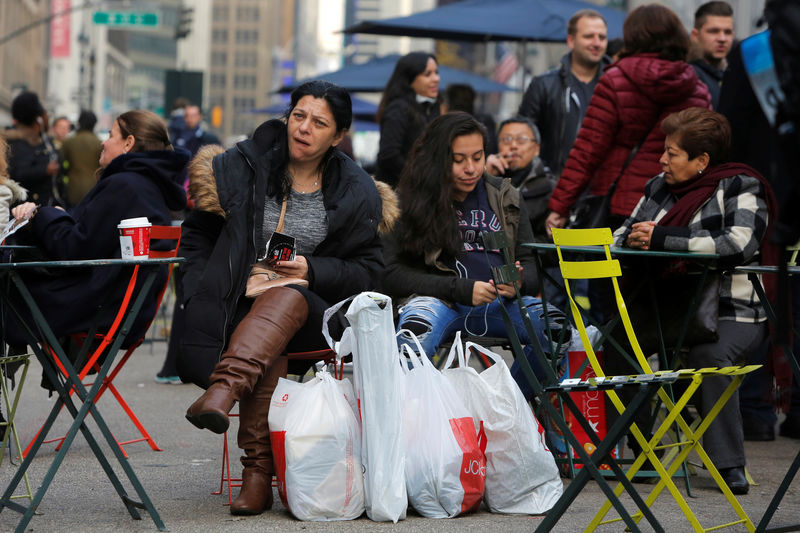NEW YORK (Reuters) - Americans' access to credit improved while their perceived vulnerability to a financial shock declined, according to a Federal Reserve Bank of New York survey that painted a slightly more optimistic picture of U.S. households.
The so-called survey of consumer expectations found that respondents who were too discouraged to apply for credit over the past 12 months declined to 4.9 percent in October, continuing a downward trend and reaching its lowest level since the survey began in 2013.
The survey, done every four months, also found a rise in those applying for and accessing credit, and a drop in rejections. It focuses on mortgages and refinancing, credit cards and limit increases, and auto loans.
The New York Fed also updated its gauge of so-called financial fragility, which measures expectations.
While the average probability of respondents needing $2,000 for an unexpected expense in the next month rose to 33 percent, from 32 percent previously, the probability of being able to come up with the funds also rose to nearly 70 percent, from 67 percent.
